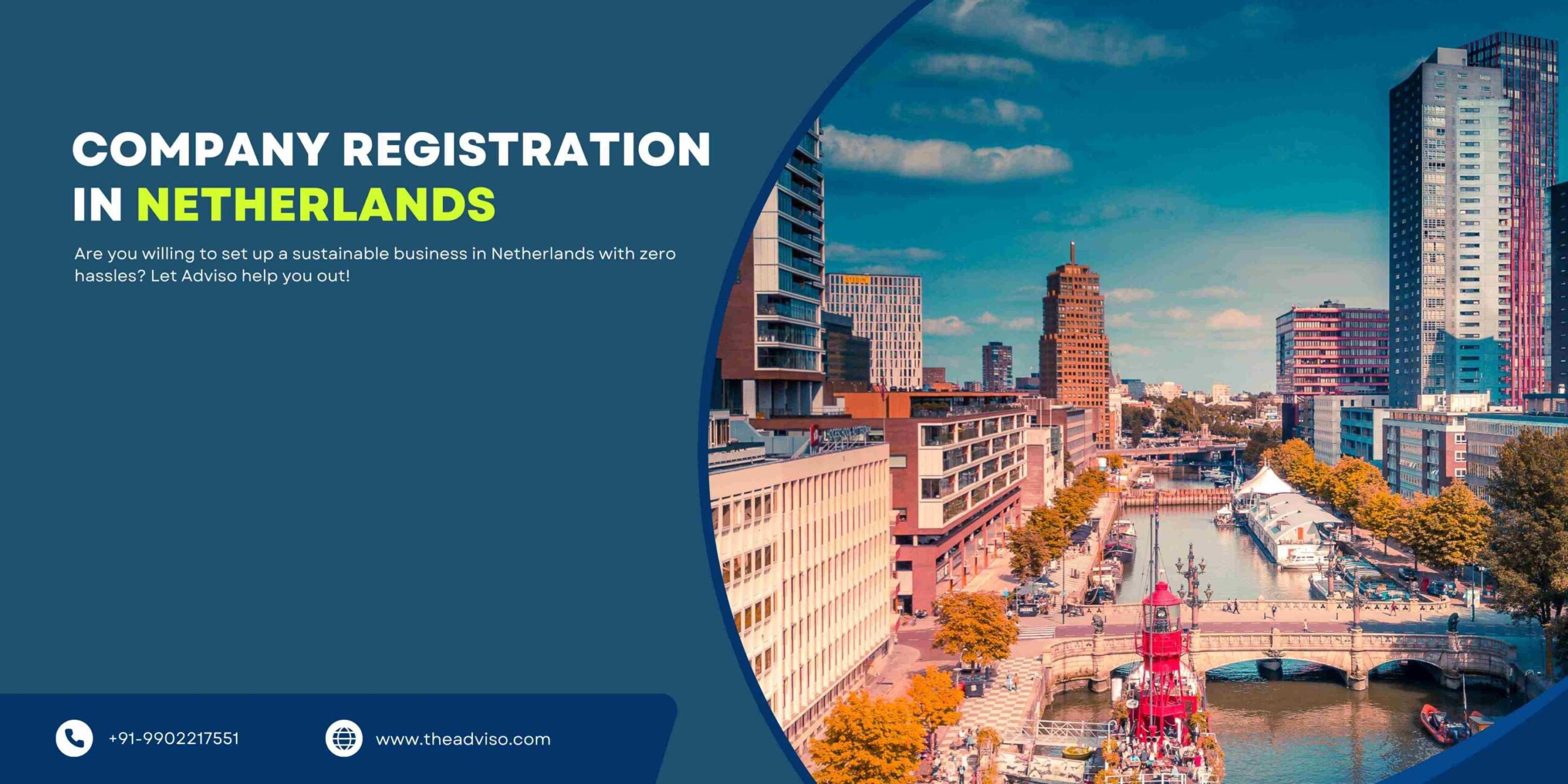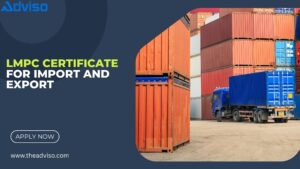Company Registration in Netherlands
The Netherlands has become a primary business hotspot in Europe for entrepreneurs globally. A business-friendly environment, robust economy, and availability of skilled manpower let businesses thrive seamlessly. Indian entrepreneurs seeking to make a mark abroad can choose this nation without thinking twice. As with other nations, registering your presence in the Netherlands is paramount. This typically means adhering to legalities like securing a company registration, opening a bank account, appointment key officials, legalizing documents, and so on and so forth. With that being said, let’s take a close look at this guide wherein you will learn everything about company registration in Netherlands, potential sectors, benefits, taxes, etc.
Potential Sectors In the Netherlands for Indian Startups
Before we delve into the legalities concerning company registration in Netherlands, let’s take a look at the sectors worth considering.
Information Technology (IT)
Revenue in the IT Services market is expected to surpass a valuation of US$27.05bn by the end of 2024. IT outsourcing leads from the front with an estimated market volume of US$10.61bn in 2024. The CAGR for 2024-29 is expected to clock at 5.05%, leading to a projected valuation of US$34.61bn by 2029.
Marine
The Netherlands Sea Freight Transport Market size is projected to surpass the valuation of USD 6.10 billion by the end of 2024. The sector is expected to reach a whopping valuation of USD 7.48 billion by 2029, clocking CAGR at 4.4%.
Exhibition & Booth Construction
As per ResearchAndMarkets, the nation’s exhibition and trade fair industry is projected to grow at a CAGR of 4.5 % from 2022-27. This growth is fueled by the ever-rising demand for exhibition spaces, particularly from sectors like logistics, technology, and healthcare.
The Netherlands has a long-standing reputation for organizing sizeable trade shows, including the Amsterdam RAI, attracting thousands of visitors every year.
Digital Marketing
According to Seeders, Digital marketing is a potential sector in the Netherlands that is growing at a faster pace. In 2022, the sector clocked 30.6 billion euros worth of annual turnover with an impressive growth rate of over 9%. Given the current demand and market, online business endeavors will continue to thrive, offering remarkable opportunities for businesses globally.
E-commerce
As per Statstica, the e-commerce sector in the Netherlands is expected to reach US$33.62bn in 2024, offering limitless potential for businesses. Furthermore, the sector is likely to attain a market valuation of US$51.84bn by 2029 while keeping CAGR 2024-2029 over 9%.
Agritrading
According to the Washington Post, The Netherlands has doubled its agri production via cutting-edge vertical farming. Now it sits next to the US to become the world’s second-largest agri-produce exporter in valuation. With continued innovation and minimal use of fertilizer, the nation is committed to scaling up agri production without compromising the quality.
Waste Trading
The Netherlands Waste To Energy Market size is likely to attain a valuation of USD 2.45 billion by the end of 2024. The sector is projected to secure a market size of USD 2.86 billion by 2029 with a CAGR of 2.10%. This growth is driven by increased emphasis on sustainability and a circular economy.
Import-Export
In June 2024, the nation’s trade surplus increased to EUR 13.3 billion from EUR 12.8 billion in the corresponding month of the past year. The import on the other hand declined by 4.2% y-o-y. The exports to non-EU nations have increased by 2.1%.
Steps to Secure Company Registration in Netherlands
The process of securing company registration in the Netherlands varies structure-wise. In general, the following steps come into play for legalizing an entity in this part of the world.
Select an Apt Business Structure
The first step involves selecting a legal structure that aligns with your ability to cater to varied compliance and taxes. The following sectors are available for company registration in Netherlands.
- Sole Proprietorship (Eenmanszaak)
- Private Limited Company (Besloten Vennootschap or BV)
- Public Limited Company (Naamloze Vennootschap or NV)
Each structure comes with a unique set of pros and cons, offering varied flexibility and stability. Make a selection based on your tolerance to withstand operational norms and taxes.
Reserve a Business Name
Follow the Dutch naming laws before you finalize the business name. Head over to the Dutch Chamber of Commerce, locally known as Kamer van Koophandel, or KvK to check whether or not the proposed name is available for registration.
Prepare Documentation
Company registration in Netherlands attracts plenty of paperwork, reinforcing the identity of a company and the business owner. Some common dossiers for registration include:
- Passport copies of the directors and shareholders
- Business plan
- Evidence of address
- Articles of association
Register with KvK
KvK refers to a Dutch registration authority that regulates and registers new entities in the Netherlands regardless of nationality. The approval of the application will lead to the grant of VAT and KvK numbers, reinforcing the legality of the entity.
Open a Dutch Bank Account
Having a Dutch bank account is paramount for overseas businesses. To open an account, visit any reputed bank supporting cross-border transactions alongside local services.
Checklist for Securing a Company Registration in Netherlands
- Choose an apt legal structure that aligns with your requirements and goals. Take taxes and compliances into account to make informed decisions.
- Arrange valid address proof and passport for identification purposes.
- Devise a viable business plan
- Annual reporting is crucial to stay transparent and compliant.
Taxes to Consider for Doing Business in the Netherlands
Before securing the company registration in the Netherlands, pay attention to the Dutch taxes imposed on Indian businesses. Common taxes include:
Corporate Income Tax
Corporate income tax is progressive in nature. While the lower rate applies to the first €200,000 of taxable profit, higher rates come into play once this threshold is passed.
Value Added Tax (VAT)
VAT applies to almost all company types regardless of nationality. It is mandatory to follow Dutch VAT laws to stay compliant. The generalized VAT rate has been capped at 21%.
Dividend Withholding Tax
Withholding tax applies to Indigenous entities distributing dividends to overseas shareholders. However, Indian businesses might encounter lower rates thanks to the Double Taxation Treaty.
Personal Income Tax
Complete relocation to the Netherlands can lead income to being taxed under Dutch laws. There is no standardized tax rate and it can vary based on the income threshold.
Conclusion
Company Registration in the Netherlands is a delicate process that attracts varied compliance and paperwork. Paying attention to these is paramount to avoid the bureaucratic hassle. If possible, proceed professionally with an expert firm like Adviso, which has been spearheading cross-border regulations for years, ensuring seamless business establishments for clients.
Read Our Article: Company Registration in Austria: A Comprehensive Guide for Foreigners




